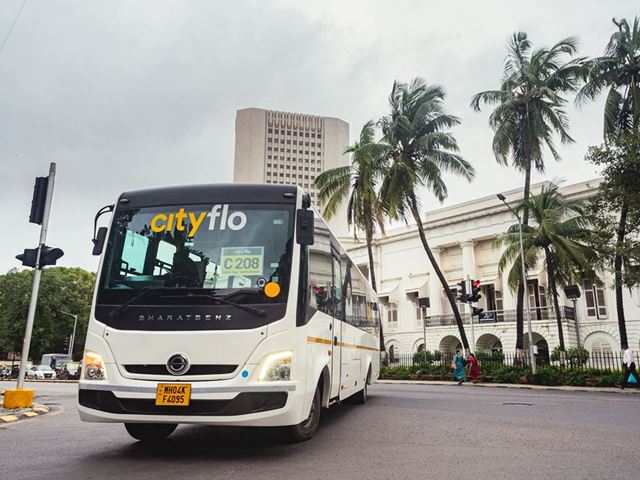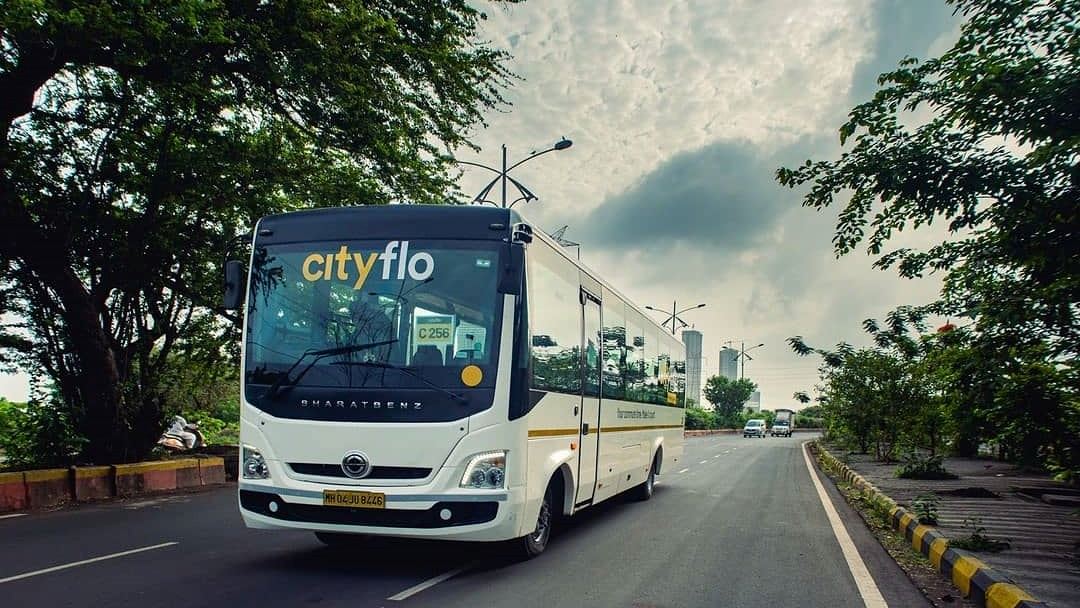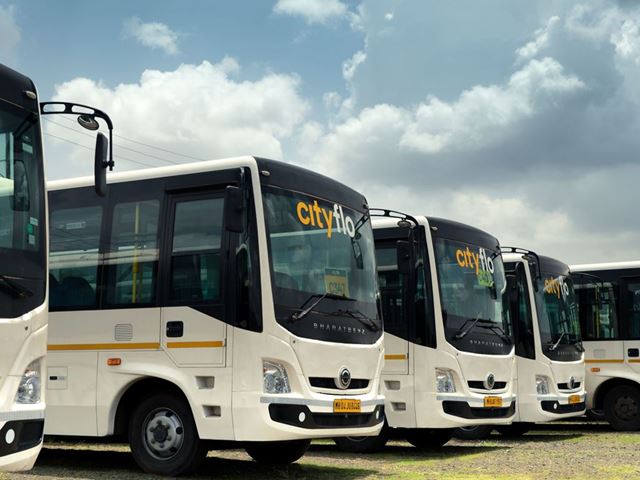
- Latest: Welcome to Auto Futures - Mobility News, Features, Exclusives and More...
- Latest: Daimler Trucks Unveils Autonomous Freightliner eCascadia Technology Demonstrator
- Latest: China's NIO & GAC Announce Partnership on EV Charging & Battery Swapping
- Latest: Automobili Pininfarina Unveils Electric Battista Cinquantacinque
- Latest: UK Self-Driving Startup Wayve Raises Over $1 Billion Led by SoftBank
- Latest: Automotive Technology That "Gets Smarter With Every Mile Driven" - Potential CEO
How Cityflo is Bringing Back the Shared Mobility Wave in India - CEO Jerin Venad
Rahul Dutta Roy
- Dec 21 2022

When ride-hailing giants like Ola and Uber wrapped up their shared carpooling services in India during the Covid pandemic, it seemed like an end for the shared scene in the country. But in came Cityflo, taking on the streets of Mumbai, one bus service at a time.
Auto Futures caught up with Cityflo's Co-founder and CEO, Jerin Venad, on how the company is managing to stay on the top in the mass transit space.
“What Starbucks did to coffee is what Cityflo wants to do to mass transit”, is Venad’s analogy for what the company set out to achieve.
“We started the company in 2015, but it didn't exactly look like it does today,” says Venad.
“In hindsight, we oversimplified the problem statement that commuting is difficult, and wondered if we could use technology to make it a little bit better. We’re first-hand witnesses of how the ride-hailing space used apps and technology to disrupt the space and were looking to do the same with buses," he adds.
Cityflo's aim is to improve mass transportation, and make it more comfortable and cost-effective for customers.
“A lot of our customer base is made up of people who have made the switch from their car. They were ready to pay a slightly higher price for a better service and not having to drive. What our customers valued was the fact that our buses were clean, they ran on time, had great connectivity between their home and office and that our drivers were professional. This insight is what gradually made Cityflo what it is today."
Previously an offline service, it took two to three years for Cityflo to transition into a fully successful service, where it had contracts with bus owners and operators who would lease their vehicles to the company. Venad explains the business of shared mobility in the context of high-density cities.
"Mumbai has about 15 million people travelling daily, and together they spend a certain amount of money on their commute. Just like any consumer segment the top 15-20% people account for the majority of the spend. With my first and last mile together, I’d spend about INR 3,000/month. But if I drive, the running expenses alone - fuel, toll, parking costs, etc - would cost me INR 15,000. If I have a hired car with a driver, say a cab or my own car, I'd spend anywhere between INR 25,000 to 45,000," he explains.
“Another interesting finding was that 8-10% of commuters who use personal cars occupy 75% of the total road space. The way our cities are structured, you have to think about how this will work in the long-term - where will these cars run, how will the route look, how do you design the roads?"

Running a Clean And Comfortable Bus Service
In Mumbai, there are 15-18 top commercial hubs and 2.5 million people who work in these hubs. This means that there's a major concentration in these pockets. Out of 15 million people, 2.5 million people travel on just these 500-600 routes in the city, every day.
"In the Cityflo route universe, we have 40 nodes that connect these 15-18 hubs. We look at the city as home centres and office centres, and simply connect them to each other, just like airlines connect cities,” says Venad.
Cityflo’s is intrinsically customer-centric, offering a good-looking bus that’s comfortable to sit in, with a lot of legroom and a smoother ride than most people’s cars. The routes are designed in a way that it caters to small hubs, but with a maximum of seven to eight stops, so that it doesn’t add to the travel time.
The buses have high service level standards for cleanliness, which comes as no surprise as the company’s Head of Appearance comes from Qatar Airways. And then there are drivers, who are empowered with training in customer etiquette, personality development, grooming, skill development - all of which results in a phenomenal customer experience onboard.
The company is also making significant additions to its fleet.
“We will be adding 1500 buses in the next 2 years. By studying a customer’s commute needs, we revamped the interiors of the bus and have launched a new design for our buses. Buses and airlines are fundamentally very similar, in that they both cater to the mass transit category, but they didn’t look or feel the same. That is a fundamental shift that Cityflo brought about together with our partners, Pinnacle Speciality Vehicles, a speciality vehicle manufacturer in Pune, as well as Daimler India Commercial Vehicles, the manufacturer of Bharat Benz buses," he says.

The Path to Profitability
At the moment, Cityflo runs 225 buses, serving over 10,000 passengers every day on 20-22 routes in Mumbai city, where there are about 450-500 potential routes, which means the scope of expansion is huge.
“99% of our business today is Mumbai,” Venad adds. It is also running a small pilot in Hyderabad.
"Over the next 6 to 12 months, we are going to let Hyderabad mature into a Rs 10-15 Cr business. We are going to broaden our focus to expanding over about 400-500% over the next two years, so growing about five to six times over the next 24 months is our plan in Mumbai. We also expect to be profitable as a company, which isn’t a small milestone for a young company like us. We’ll look at doing this by replicating our business model across newer routes in the city."
Venad believes that there's an opportunity for at least 200,000 rides in Mumbai itself. That's a 20 times growth from where it is today.
“I'm extremely bullish, at least from an India perspective. We have about 1.4 buses per thousand people in the country. The average for developed countries is about seven or 10 buses for every thousand people. We know that India as a country needs a lot more buses. We have about 1.9 million buses in the country currently. Realistically, we’re going to need at least 10 million buses in the country to cater to the growing population," he says.
"If we run buses, we have to run it sustainably, because if we don't run it in a way that generates profits, we cannot sustain it. Cityflo plays a very, very small part of that, which is the premium end of the services, very much serving the megacities. For one company, that's a massive outcome. I'm a big believer in the potential for buses as a whole across India and am very excited to see the adoption of the service across the country,” concludes Venad.
Tags
Popular Categories
